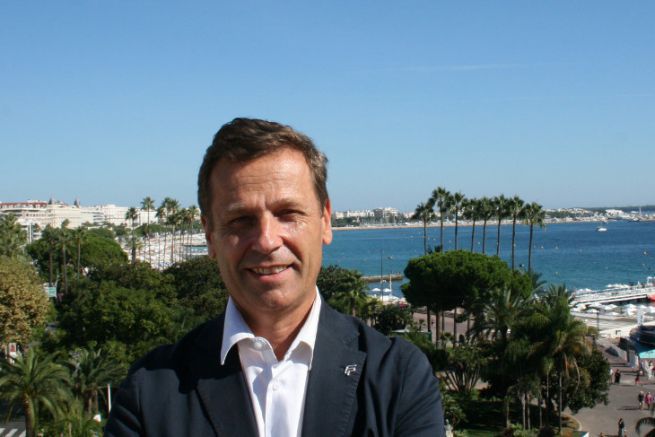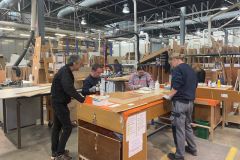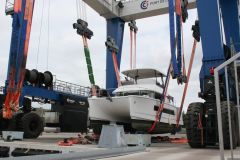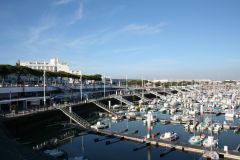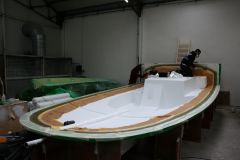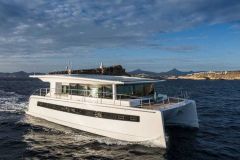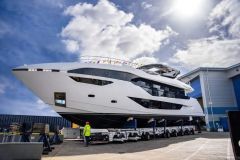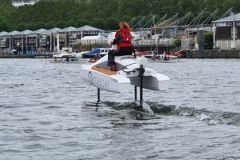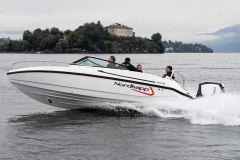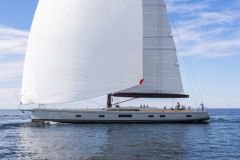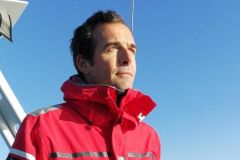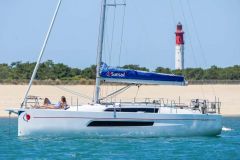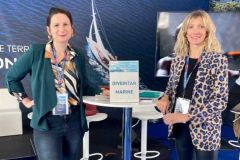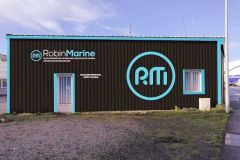The Fountaine-Pajot group has had a busy 2017/2018 season, marked by strong growth and the acquisition of the Rochelais shipyard Dufour Yachts. Nicolas Gardies, the group's CEO, talks to BoatIndustry about the projects of France's 2nd largest yachting manufacturer.
Fountaine-Pajot has seen a sharp increase in boat production in recent years. How does this translate in industrial terms?
We have launched significant investments since 2016, through the Ocean 40 program for New Organization for Capacity, Efficiency and Improvement, which runs until 2019. We took delivery of the new workshops in 2016 and the new headquarters in 2018. Catamarans are produced 2/3 at the Aigrefeuille site and 1/3 at the La Rochelle plant. For all models, except the 67-footer, we operate with a single central assembly line, supplied by 4 peripheral workshops for the hull, fly, deck and interior modules of the boat.
The production is rhythmic and the line advances every 2 days. In one year, we have gone from a 3-day to a 2-day rhythm. This represents 105 boats per year. Our objective now is to improve the flow to 1.5 days, which is not unrealistic when some competitors are at 0.75 days. To achieve this, we are working on continuous improvement through ISO standards.
The use of an ERP system allows us to better manage procurement and suppliers. We had reached a threshold and to move to the next stage, we recruited an industrial director from the plastics industry. He will soon be joined by a Supply Chain Director.
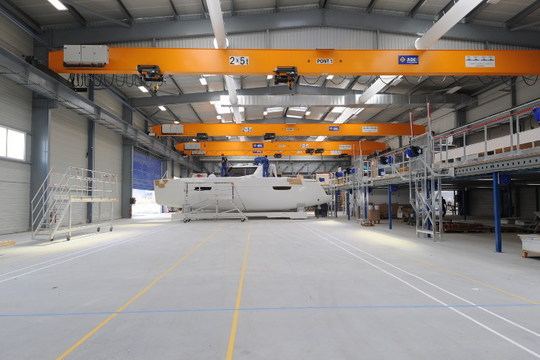
What are the industrial and commercial synergies to come following the acquisition of Dufour Yachts and its monohulls?
From an industrial point of view, the Fountaine-Pajot factories are in La Rochelle and Aigrefeuille, while the Dufour factory is in Périgny, halfway between the two. The proximity will obviously help exchanges. However, a multihull production site is fundamentally different from a monohull factory. We won't do one at the other.
The equipment for catamarans is oversized for a monohull. On the other hand, we can improve processes and work on common solutions. When we develop an electronic application, it can be common. Similarly, when we think about packaging and supply issues with a supplier. Proximity allows us to set up a joint logistics tour. Dufour Yachts has a carpenter's shop, while Fountaine-Pajot does not.
From a commercial point of view, bridges are being built between the 2 networks. We have gained weight with respect to distributors and dealers, with a complementary offer in terms of price: Fountaine-Pajot catamarans range from 250,000 euros to 2.5 million euros and Dufour sailboats from 80,000 euros to 1.2 million euros.
What is planned in terms of governance?
The management has remained in place and we still rely on it. We don't pretend to revolutionize everything.
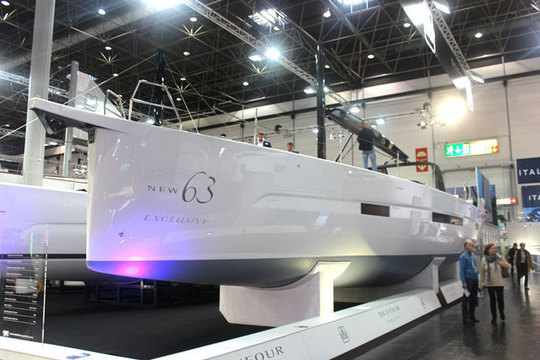
What are your recruitment goals and how are you dealing with the labor shortage?
The group now represents 1,100 employees at Fountaine-Pajot and Dufour Yachts. We hired 60 people in 2017 and are aiming for 140 hires in 2019. This makes us the 2nd largest employer in the yachting industry in France, if not in Europe. We must therefore strengthen our human resources process. Today, interim staffing represents 25 to 30% of our workforce. It's an entry point. We need to strengthen the integration process, because it is not always easy to keep people.
Training courses are organized with all the partners in the sector, such as CIPECMA in Chatelaillon or the AFPA, in fields such as composite, carpentry for furniture assembly, electricity, electronics or deck fittings. The new employee is then taken in charge by a tutor, along with 3 other recruits, to learn Fountaine-Pajot's working methods. The person is assessed on his or her behavior in the company and technical abilities. If he or she is selected, he or she is finally integrated into a team. The idea is to put the operator in the best conditions to stay.
After the acquisition of DreamYacht Charter and Dufour Yachts, what are the prospects for new developments?
Dream Yacht Charter brings us a good vision of the maintenance issues on boats that turn a lot. It also secures sales. Loïc Bonnet also regularly launches new projects for his clients. For its part, Dufour must be able to do better in the charter business. We remain industrialists, but we are obviously attentive to usage. New yachtsmen use charter to get around.
